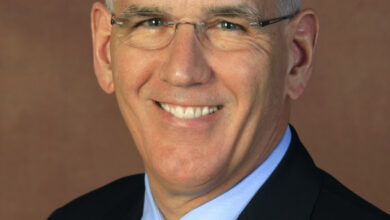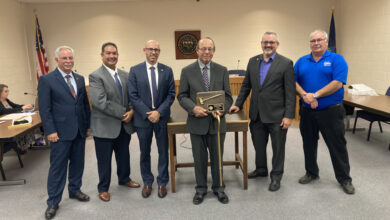New York State Budget

Greater Rochester Chamber statement on FY2025 NYS Budget
New York State passed its $237 billion FY2025 budget on Saturday, April 20, 2024. This budget encompasses crucial allocations for infrastructure development, education funding, healthcare initiatives, and economic stimulus measures, all of which hold significant implications for the region’s growth and prosperity.
Greater Rochester Chamber of Commerce President and CEO Bob Duffy said, “This year’s budget takes meaningful steps towards addressing issues faced by communities and businesses throughout New York State. Greater Rochester Chamber is grateful to Governor Hochul, Leader Stewart-Cousins, and Speaker Heastie for avoiding any new taxes on individuals or businesses, sunsetting COVID-19 sick pay, protecting retail workers, expanding the list of offenses eligible for prosecution as a hate crime, cracking down on illicit cannabis sales, and making substantial investments into economic growth and housing. We are particularly grateful to the Governor for her steadfast support of including measures that enhance public safety. We will continue working with the Governor and Legislature in supporting policies that make New York safer, that encourage people to come here and stay here, and the support business attraction, retention, and expansion.”
As the primary advocate for the Greater Rochester/Finger Lakes business community, Greater Rochester Chamber plays a crucial role in interpreting the potential impact of proposed policies and initiatives on our local businesses. We were proud to have a voice in key conversations during budget negotiations this year to advocate for our members and their concerns. To learn more about our advocacy efforts, visit https://www.greaterrochesterchamber.com/advocacy/.
Provided information
New York State Association of Counties on state budget
The New York State Association of Counties is a bipartisan municipal association serving all the counties of New York State, including the City of New York. Organized in 1925, NYSAC’s mission is to represent, educate, serve and advocate for member counties and the elected and appointed county officials who serve the public. NYSAC President Daniel P. McCoy released the following statement.
“Counties applaud Governor Hochul, Majority Leader Stewart-Cousins and Speaker Heastie for reaching an agreement on a state budget that makes historic investments in housing, mental health care, education, elections, and public safety while protecting local taxpayers from significant new state mandates.
As the administrative arm of state government, counties are always striving to work collaboratively with our partners at the state level, and a perfect example is the final budget’s wind-down of the Countywide Shared Services Initiative. The agreement reached in the budget honors the state’s funding commitment for projects submitted prior to January 31st while also relieving local government staff – who are already stretched thin from the burdensome requirements of this outdated program. In addition, the enacted budget extends the school bus stop arm camera program which has proven to be successful across our state.
In the end, all state budgets are a series of compromises, and we appreciate state leaders for working with counties to craft legislation that will bring New York State into compliance with the U.S. Supreme Court’s ruling on real property tax foreclosures. While not a perfect solution, the compromise reached in the budget is fair to property owners, taxpayers, and county governments that are charged with enforcing New York State tax law.
We are disappointed that state leaders could not reach an agreement on legislation to achieve fairness in the short-term rental market, like AirBnB. Counties will continue to advocate for legislation that levels the playing field between hotels and short-term rentals and empowers local governments to collect outside revenue that reduces the local tax burden while also enabling new investments in tourism and hospitality.
We look forward to working with the Governor and State Legislators throughout the rest of the Legislative Session on this and a host of other urgent issues facing local governments, including rescuing local EMS systems that are in crisis across the state, strengthening local recycling programs, and addressing the severe and chronic shortages in the local government workforce.”
Provided information
NYCOM applauds increased state aid for municipalities
The New York Conference of Mayors and Municipal Officials (NYCOM), the statewide advocacy organization representing New York’s cities and villages, has released the following statement on the adoption of the SFY 2024-2025 State Budget.
“NYCOM is grateful that after 15 years, the Governor and the State Legislature agreed to an additional $50 million in unrestricted state aid for cities, villages and towns. Our members made their voices heard in every corner of the state which led to a positive outcome not just for local governments, but for all of New York. We firmly believe that the only way to make our state safer, stronger and more affordable is by working together — and local officials are more than ready to do that. We are confident that the benefits of this increase will clearly demonstrate to our state leaders the value that comes from investing in their municipal partners and hope that this will pave the way for consistent and meaningful support for our communities going forward.”
Provided information
CSEA celebrates Tier 6 pension plan reform in State Budget
CSEA, New York’s largest public employee union, is celebrating the inclusion of reforms to the Tier 6 pension plan in the FY2025 State Budget.
“We applaud Governor Hochul, Senate Majority Leader Andrea Stewart-Cousins, and Assembly Speaker Carl Heastie for their strong leadership in fighting for pension equity for Tier 6 members,” said CSEA President Mary E. Sullivan.
The enacted state budget includes a change to how pensions are calculated. Under the new law, a Tier 6 employee’s pension will be based on their top three years of earnings instead of five years. This change will increase retirement security for Tier 6 employees and make Tier 6 look more like earlier pension tiers.
“The State, local governments, school districts, and other public employers are finding it extremely difficult to recruit and retain employees – Tier 6 is a big part of the problem. The reforms in this budget will make the pension more valuable and appealing to New Yorkers considering a career in the public sector.”
CSEA members across the state have been urging lawmakers to include Tier 6 reforms in the budget. Since January, CSEA members have sent over 10,000 e-mails and thousands of phone calls to state legislators and the Governor.
Provided information
Hawley slams state budget
Assemblyman Steve Hawley (R,C-Batavia) criticized members of the Majority for passing a state budget that he feels does not properly address New York’s most pressing issues. The budget, which came in at a total of $237 billion, is almost $10 billion more than last year and includes billions in funding for illegal migrants and inadequate spending for public safety measures. They also specifically authorized the Governor to have the power to close up to five correctional facilities within the next five years, which experts say could leave a devastating impact on the economies of the surrounding communities. While the Majority has dramatically increased spending for the next fiscal year, Hawley says they have not properly explained how the state will be able to pay for it. New York’s debt is currently over $400 billion and rising by the minute. Hawley believes this budget is a sign of fiscal irresponsibility and misplaced priorities. Spending money we don’t have will only cause more problems in the long run. He says New York must stop this trend and work toward balancing its budgets.
“Budget season in Albany is like watching an old rerun of Groundhog Day,” said Hawley. “Every year it’s the same story time and time again. The budget is late, expensive and as always, a complete disaster. With the billions of dollars they’re spending, it’s astounding the Majority is doing nothing to curb the public safety crisis in our state. We’ve had four police officers killed in the line of duty this year alone, one of them in Genesee County. Not to mention the irresponsible decision of giving the Governor the power to close up to five prisons with only 90 days’ notice. Instead, we’re pulling money out of thin air to pay for problems we created. This is unacceptable. Families would never be this irresponsible in their personal budgets, so why are the Governor and Majority Conferences doing so?”
Provided information
Health care issues in budget
The following statement was issued by George Gresham, President, 1199SEIU United Healthcare Workers East, and Kenneth E. Raske, President, Greater New York Hospital Association.
“The final budget agreement represents a significant improvement from Governor Hochul’s initial proposal – which contained over $1 billion in Medicaid cuts – and highlights the immense importance of our ongoing Medicaid Equity campaign. The New York State Legislature clearly heard the voices of their constituents, tens of thousands of whom made calls, wrote letters, and told their healthcare stories in the halls of our state Capitol and on the airwaves.
This budget represents a meaningful first step towards reducing and ultimately eliminating the Medicaid coverage gap. Thanks to the advocacy of Speaker Carl Heastie and Majority Leader Andrea Stewart-Cousins, it includes a vitally needed $800 million in support for struggling safety net institutions. We are also very encouraged that the State will pursue Federal approval for a managed care organization tax, which is an essential building block for an adequately funded Medicaid system. But this budget is not perfect – the downpayment on a Medicaid rate increase is less than what is truly needed to ensure access for Medicaid consumers and safeguard standards for quality care.
We are also grateful that the final agreement rejected cuts to wages for home care workers and care for home care consumers, instead finding savings in unnecessary administrative costs. While the transition to a new home care system will be challenging, we will work tirelessly to ensure that the voices of home care workers and consumers are heard and that mission-driven providers remain an important part of service delivery and consumer support.
Medicaid Equity is a moral and racial justice issue. This is why health advocates, Medicaid patients, frontline caregivers, and hundreds of ministers, priests, rabbis, imams, and others from New York’s faith communities have joined together to fight for it. As we have said from Day 1, the effort to reduce health care disparities in low-income communities and end Medicaid underpayments to hospitals and nursing homes will be a difficult, multi-year effort. This budget is only the beginning, and we will not rest until health care justice is achieved.”
Provided information





